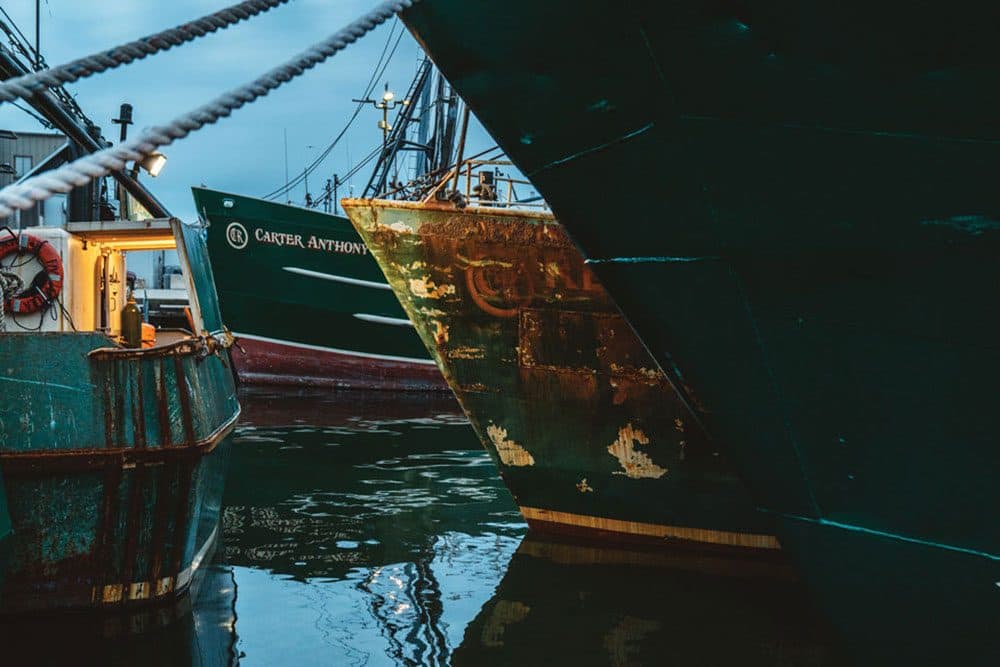Advertisement
Fishing Group Led By New Bedford's 'Codfather' Is Shut Down By The Government

Federal regulators are shutting down fishing rights for a significant portion of New England’s stressed groundfish stocks, such as cod and flounder.
The National Oceanic and Atmospheric Administration (NOAA) on Monday said managers for a New Bedford-based sector undermined conservation goals while disgraced fishing magnate Carlos Rafael was falsifying catch reports.
There are 19 groundfish sectors in the Northeast, each representing a group of fishermen who manage catch quotas set by NOAA regulators.
Sector IX is dominated by boats based in New Bedford and owned by Rafael, also known as “the Codfather,” who started a nearly four-year prison sentence in Fort Devens this month after he confessed to falsifying catch information.
Federal regulators say Sector IX officials, including Rafael’s daughter, failed to develop information to show that quotas were no longer being violated, and so its fishermen won’t be allowed to catch more groundfish this fishing year, which ends in April — or the next year, if a valid new management plan isn’t offered.
“They do need to make significant changes. And until they do, their boats will be tied to the dock,” says John Bullard, NOAA’s regional administrator.
Bullard says lacking reliable data, it’s difficult to assess damage already done to various species in the Gulf of Maine. But he says it’s significant.
“They’ve exceeded quotas of cod, of yellowtail flounder and witch flounder by perhaps as much as a whole year’s quota,” he says.
New Bedford Mayor Jon Mitchell says Rafael deserves condemnation. But he adds that a piecemeal approach to the disposition of his permits — by criminal, civil and administrative action — is creating hardship for innocent bystanders.
“By keeping these boats in port there will be crew members who won’t have an opportunity to earn a living over the next six months, and there will be shore-side businesses, including ice and fuel suppliers as well as net menders and settlement houses, that will lose a portion of their business,” he says.
But away from New Bedford, others are cheering the decision.
Advertisement
“This is very positive,” says Ben Martens, executive director of the Maine Coast Fishermen’s Association, which manages one of the 19 sectors.
The New England Fishery Management Council said it supports the federal move.
Martens says Rafael’s scam distorted the entire market for New England’s historic cod and flounder fisheries, as well as scientific assessments of their health.
“Fishing vessels throughout New England who have been doing things the right way out on the water have been hoping that NOAA will come down on this sector and say, ‘You have been breaking the rules and there are repercussions for breaking the rules,’ ” he says.
That could include reductions in Sector IX’s future quotas, to make up for overfishing that may have occurred. In the meantime, other sectors will still be able to fish their full quotas — but they won’t be able to trade quota leases with Sector IX boats.
This story was first published by Maine Public. An earlier version of this article included reporting from The Associated Press and the WBUR Newsroom.
This article was originally published on November 21, 2017.
This segment aired on November 24, 2017.